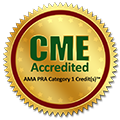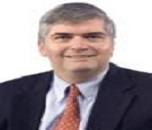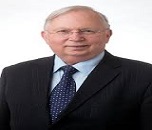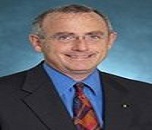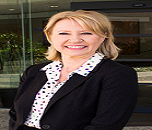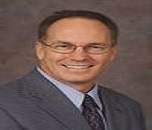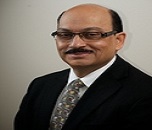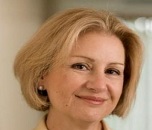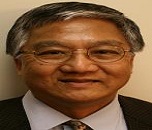Previous Speakers
Conference Information
Sessions/Track
On behalf of Pulsus Group, we are honoured to invite you to join the 8th International Conference on Dementia and Dementia Care which will be held from September 18-19, 2017 at Dublin,Ireland.
The conference will be organized around the theme “Priorities the Global Research and Progression of Novel Drugs and Technologies in Dementia and Dementia Care”.
Euro Dementia Care 2017 has been planned and implemented in accordance with the accreditation requirements and policies of the Accreditation Committee.
We will likely convey an extraordinary program which covers the whole range of research in Dementia and Dementia care and share the multifaceted encounters of different treatment methodology.
Euro Dementia Care 2017 is a global annual meeting of innovators and organizations in terms to exhibit the most recent research and consequences of researchers related including decisions about novel drug discovery, technical development in care methods, on-going clinical trials, end of life issues and organisational development.
This meeting will give chances to the distinctive ranges representatives to trade new thoughts and application encounters up close and personal, to set up business or research relations and to discover worldwide accomplices for future cooperation.
Session: Dementia
Dementia is a decline in mental ability severe enough to interfere with day to day life. The most commonly occurring symptoms of dementia are decrease in ability to think and remember, emotional problems, problems with language, decrease in motivation. World Health Organisation’s list of top ten leading causes of deaths all over the world, Alzheimer’s and other dementias has 7th ranking. Dementia has overtaken as leading cause of death in England and Wales over heart diseases. Alzheimer’s disease is 6th leading cause of death in the USA and it kills more than breast and prostate cancer combined. To solve problems of globally various dementia conferences were arranged to find cure for dementia society universally.
Session: Alzheimer’s Disease
Alzheimer’s is most common type of dementia. Alzheimer’s is a chronic neurodegenerative disorder. Patient of Alzheimer’s shows early symptoms of short term memory and later progresses to problems in language, disorientation. Causes of Alzheimer’s are not clear yet, but 70% of risks are associated with genetics. There are no existing treatments to reverse or stop Alzheimer’s. Most of patients with Alzheimer’s are above 65 years of age but 4-5% cases are of early onset Alzheimer’s. It’s still one of the costly diseases. Alzheimer’s disease has been key topics in neurology conferences and dementia conferences. Separate Alzheimer’s conferences has been arranged to make aware world for its consequences. In 2016, hundreds of conferences has main topic as Alzheimer’s disease as it contributes to 60-70% cases of dementia. Several countries governments are taking initiative in Alzheimer’s congress such as UK, USA, Canada, France having high ratio of deaths due to Alzheimer’s patients and other dementias.
Session: Vascular Dementia
Vascular dementia is second most common type of dementia after Alzheimer’s. Reduced blood supply to brain which causes problems in supply of oxygen and nutrients to brain, causes series of minor attacks. Vascular dementia can’t be detected till it has series of attacks. Death of brain cells causes problems in memory, thinking and reasoning. There are various types of vascular dementia such as Stroke-related dementia, Post-stroke dementia, Single-infarct and multi-infarct dementia, subcortical dementia. High blood pressure, high blood cholesterol level, diabetes are some factors which help in prevention of vascular dementia. Vascular dementia is common type of dementia after Alzheimer’s disease contributing to nearly 20% cases making it significant in discussions of dementia congress.
Session: Lewy Body Dementia
Alpha synuclein protein depositions in neurons cause Lewy body dementia. Symptoms of Lewy body dementia are hallucinations, rigidness in movement. In Lewy body dementia, disruption among brain cells occur, after one year of observation and progression in symptoms with Parkinson’s disease the diagnosis of Lewy body dementia is possible. If cognitive problems occur with a year of movement problems doctors declares it as Lewy body dementia and if not then it is declared as Parkinson’s disease. There are not specific stages as Lewy body dementia is progressive but early stage and late stage symptoms are found in literature. Lewy body dementia is common in men and in all races it’s equally found. It is normal kind of dementia after Alzheimer's illness and having same cases as vascular dementia making it critical in dialogs of dementia meetings.
Session: Frontotemporal Dementia
Frontotemporal dementia is broad term for group of disorders caused by progressive nerve cell loss in the frontal and temporal lobes of brain. Spindle neurons have 70% loss in Frontotemporal dementia patients while other neurons remain unchanged. Temporal lobes have specific function such as right temporal lobe involved in recognition of faces and known objects. Left temporal lobe involved in meaning of names and words of objects. Frontotemporal dementia includes changes in behaviour, personality and difficulty in speech. It is significant cause of dementia in younger peoples. MRI scans may show the frontal and temporal lobe atrophy.
Session: Mixed Dementia
Mixed dementia is the coexistence of multiple dementias simultaneously. Alzheimer’s and Vascular dementia coexistence is most dangerous type of dementia. In some cases it will be really challenging to diagnose it as most of symptoms with resemble to Alzheimer’s and in different cases sign of mixed dementia will be there clearly. 94% of mixed dementia patients were first diagnosed with Alzheimer’s disease. Mixed dementia symptoms fluctuate with the areas of brain get affected. Currently there is no specific drug for mixed dementia but mostly physicians prescribe on the basis of patient conditions and normally the Alzheimer’s medicine is given to patients. Mixed dementia has been tricky topics of discussions in dementia meetings and dementia conferences since there is no legitimate technique to diagnose and no particular signs are there.
Session: Dementia Stages
The Term “Stages of dementia” describes about how someone gets affected by dementia over the years. Although each stage is different discussing about this topic helps caregivers to understand the patient’s situation and plan how to care. They are classified into three stages classification: early stage dementia, mid-stage dementia and late-stage dementia.
In The first stage of dementia the signs and symptoms are found to be faint. Mild cognitive impairment (MCI) is the earliest stage. The symptoms of early stages vary a lot based on the type of dementia. In case of mid stage the changes in the persons with dementia are obvious to people close to them, though outsiders may not notice them. Daily life and relationships are affected. They need more help because they are either unable to do tasks or have lost interest in everything. Frustration, anger, mood swings, and conflicts are common in mid stage dementia. In the late stage the patient is affected in all facet of life. They always become dependent for all activities. Their health gets worse in, multiple ways. The dementia conference also enlightens the people about stages of dementia.
Session: Reversible Dementia
Dementia caused by various conditions can be reversed with appropriate treatment. The “reversible dementia” is the disorders found with cognitive or behavioral symptoms. These symptoms are not enough to fulfil the clinical criteria for dementia .The causes of potentially reversible dementia are drugs or alcohol abuse, space- occupying lesions, adverse effect of drugs, normal pressure hydrocephalus and metabolic conditions results in endocrinal conditions like hypothyroidism and nutritional condition like B-12 deficiency. Depression is the most common cause for reversible dementia. The potentially reversible dementias should be identified and considered for treatment.
Session: Assessment and Diagnosis in Dementia
The complete detailed assessment of dementia in needed to exclude similar symptoms showing to such diseases such as depression which is curable. It’s necessary to provide time to dementia patients to plan future and make them literate about the possible affects in future. There are various tests for diagnosing dementia such as Mini Mental State Examination (MMSE), Mental Score test, Trail making test. MMSE test include series of exercises in which various problems are checked with memory, speech, ability to respond. Blood test is also done to check levels of vitamin B12 and thyroid hormones which may be responsible. Brain scans such as MRI and CT scans used for checking brain tumour and strokes in vascular dementia. Neurology gatherings talked about rigorously on dementia diagnosis as its mistaking for different maladies like Parkinson’s' disease in which they discover in which they establish new methodologies and techniques for analysis as dementia society is in dire need of dependable diagnosis methods.
Session: Causes and Risk Factors
Causes of dementia depend on areas of brain affected due to dementia. Dementia is progressive in nature; one of most common type of progressive dementia is Lewy body dementia. There are four primary form of reversible dementia: hypothyroidism, vitamin B12 lack, neurosyphillis and Lyme disease. Head injury, stroke or brain tumour may cause dementia. Age is one of the most important risk factor of dementia, 65years exceeding persons has more chances of having dementia. Ageing and genetic inheritance from ancestors is beyond control but other risk factors such as hypertension, hyperlipidaemia, hyperthoiroidism, alcohol use in large amounts, smoking can be prevented or controlled. Few risk factors can be prevented with healthy lifestyle and proper diet. Causes and risk elements have contributed enormously in dementia research and discovered new measures in dementia conferences.
Session: Care Practices in Dementia
Dementia patients need assistance and full time care as much as drugs. Some common care practices in dementia are assistance in food and fluid consumption, pain management, social engagement ensuring safety and security of dementia patients. Main aim of care practices is to ensure cut in hospitalisation and psychotropic drugs. Understanding patient’s mood changes, particular behaviour, speech problems and help in rectifying them. Dementia patients need end of life care so qualified nursing staff is needed. Few care practices which are used are indoor and outdoor activities, visual and audio stimulation, art therapy. Care practices in dementia have been critical to partake in international dementia meetings. In need to evolve in dementia care world gathering and genuine talks on dementia care is required.
Session: Dementia Awareness
Dementia is advancing and incapacitating disease that affects more number of people around the world. Diagnosis of the patient with dementia makes a frightening scenario for those affected by syndrome, their family members and caretakers. Insufficient knowledge of its symptoms and supports available, conceive us to see inefficient and ineffective approach to provide services to the people with dementia. Better understanding about public awareness of dementia aids more effective health and social policies. The dementia conference discusses Public awareness to achieve higher rate of early diagnosis and to decrease the distress among the patient, family and caregiver.
Session: Case Reports in Dementia
Case reports in dementia supports the comprehensive report of causes, symptoms, treatment and possible outcome. Each case report distinguishes in conditions such as age, family background, treatment given and effects of it. This all helps to design, categorise the future aspects of disease. Case report will be highly helpful for the researchers to develop new methods and for physicians to develop diagnosis of dementia patients. Case reports in dementia gives some thought regarding diagnosis, treatment and level of cure perhaps conceivable preventions to be taken moreover. Be that as it may, most recognized case reports have been talked about in past dementia conferences have been extremely useful to researchers to carry on with their work.
Session: Clinical Trials in Dementia
Rigorous clinical trials on dementia drugs are continuing in USA and UK. The most of drugs are in II and III phases. The most problems pharmaceutical companies facing are inadequate participants for trials. Most of clinical trials are done in specific areas are Amyloid beta plaques, the immune system, Tau tangles. Dementia conferences exhibit clinical trial medications and offers positivity to new prospects in curing dementia.
Session: Drug Developments in Dementia
The existing drugs such as Cholinesterase inhibitors and Memantine are usually used to treat dementia and some other antidepressant also used with the treatments. Drugs are prescribed on the basis of severity of symptoms, such as mild-moderate dementia and moderate-severe dementia. New medications for dementia being developed in 2014/2015, 31% were named symptoms modifying. There are many developments are going on in drug discovery of dementia as old treatments are unable to stop the progression of dementia. Most associations share their exploration on new medications for dementia in dementia conferences to get higher esteem to their items. This gets to be distinctly gainful to different geriatric doctors to redesign themselves with such medications and progressing possibilities by going to dementia conferences. Such dementia meetings will help researchers to know target areas for drug development in dementia and work toward it.
Session: Animal Models in Dementia
To treat dementia it needs new drug compounds and animal models for guaranteeing safety and effectiveness of drugs. Major cause of dementia is genetics, dementia occur due to genetic factors for such dementias transgenic and gene targeted models are used. Animal models contribute as model organism similar to human i.e. homologous models showing exceptional results that matches conditions in dementia patients. The most commonly used animal models are transgenic mice model, zebra fish model, Drosophila melanogaster model. Drosophila melanogaster models are used in neuroimaging techniques. All these models immensely help in new research and discoveries of dementia related methods and drugs. A few global dementia conference arguments have indicated animal model’s significance in diagnosing pharmacological impacts.
Session: Recent Advancement in Treatment of Dementia
Advancement in treatment in dementia is needed in understanding under laying causes of dementia. Reminiscence therapy has shown good effects on dementia patients. Dementia is one of the most costly disease in world, this therapy is easy to conduct and inexpensive. Reminiscence therapy uses past incidences and encourage patients to write and explain past incidences which helps in maintaining mental health. As depression can be one of most causes of dementia, psychotherapy helps such patients immensely. Dementia care through cloud technology helps patients in keeping track of their conditions and progress rate, supporting staff and planning in daily care in dementia. Advancement in such therapies using technology and natural therapies will help physicians to treat dementia effectively. New progressions have been subject of dementia meetings and prime wellspring of learning with respect to Dementia, these dementia gatherings has taken one stage nearer to dementia cure.
About Conference
On behalf of Pulsus Group, we are honoured to invite you to join the 9th International Conference on Dementia and Dementia Care which will be held from September 3-5,2018 at London,UK.
The conference will be organized around the theme “Priorities the Global Research and Progression of Novel Drugs and Technologies in Dementia and Dementia Care”.
Euro Dementia Care 2018 has been planned and implemented in accordance with the accreditation requirements and policies of the Accreditation Committee.
We will likely convey an extraordinary program which covers the whole range of research in Dementia and Dementia care and share the multifaceted encounters of different treatment methodology.
Euro Dementia Care 2018 is a global annual meeting of innovators and organizations in terms to exhibit the most recent research and consequences of researchers related including decisions about novel drug discovery, technical development in care methods, on-going clinical trials, end of life issues and organisational development.
This meeting will give chances to the distinctive ranges representatives to trade new thoughts and application encounters up close and personal, to set up business or research relations and to discover worldwide accomplices for future cooperation.
Pulsus Group is a Medical publisher that adheres to stringent peer-review procedure with a view to set an example in promoting standard medical research with integrity. Pulsus Group takes pride in getting the endorsements of prestigious associations and societies like Canadian medical societies. As an ardent supporter of medical publishing, Pulsus Group closely associates with the Canadian and other international medical research associations. It publishes a wide range of medical journals that focus on medical specialties like cardiology, Integrative Medicine, Surgery and Reproductive Medicine.Pulsus group is closely associated with globally renowned academic and research societies like Canadian Society of Plastic Surgeons, Canadian Society for Aesthetic Plastic Surgery, Groupe pour l'Avancementde la Microchirurgie Canada, Canadian Society for Surgery of the Hand.
Dementia, including Alzheimer’s disease, is one of the biggest global public health challenges facing our generation. Worldwide, at least 44 million people are living with dementia this number is expected to double by 2030 and more than triple by 2050 to 115 million. Much of the increase will be in developing countries like Western Europe and North America. Already 62% of people with dementia live in developing countries. Today, over 35 million people worldwide currently live with the condition. This number is expected to double by 2030 and more than triple by 2050 to 115 million. No treatments available to slow or stop the brain damage caused by Alzheimer’s disease, several medications can temporarily help improve the symptoms of dementia for some people. In two decades, it is estimated that 1.4 million Canadians will have dementia, costing the economy almost $300 billion per year. Globally, dementia cost $600 billion a year.
Market Analysis
On behalf of Pulsus Group, we are honoured to invite you to join the 9th International Conference on Dementia and Dementia Care which will be held from September 3-5, 2018 at London, UK.
The conference will be organized around the theme “Priorities the Global Research and Progression of Novel Drugs and Technologies in Dementia and Dementia Care”.
Euro Dementia Care 2018 has been planned and implemented in accordance with the accreditation requirements and policies of the Accreditation Committee.
We will likely convey an extraordinary program which covers the whole range of research in Dementia and Dementia care and share the multifaceted encounters of different treatment methodology.
Euro Dementia Care 2018 is a global annual meeting of innovators and organizations in terms to exhibit the most recent research and consequences of researchers related including decisions about novel drug discovery, technical development in care methods, on-going clinical trials, end of life issues and organisational development.
This meeting will give chances to the distinctive ranges representatives to trade new thoughts and application encounters up close and personal, to set up business or research relations and to discover worldwide accomplices for future cooperation.
According to WHO 47.5 million people have dementia and every year 7.7 million new cases are appearing. By 2030 total cases of dementia is projected to be 75.6 million and almost triple by 2050 to 135.5 million. Alzheimer’s disease contributes 60-70 % of cases in dementia and second most common condition of dementia is vascular dementia which contributes 20% of cases all over the world. Total estimated cost of dementia is 818 billion US $ in 2015.
In developed countries only 20-50 % of dementia cases are diagnosed and documented as primary care. In low and middle income countries contributes to 58% of all dementia cases. Dementia has overall economic impact of £26.3 billion in UK and $157 billion in USA annually. Overall death rate in world due to dementia, Finland has highest death rate i.e. 53.77 % and in other countries high rate of dementia such as United States, United Kingdom, Canada, Australia and lowest in Republic of Suriname.
Ireland is one of top four countries having highest death rate due to dementia, in Ireland percentage is 34.08%. In Ireland roughly 41,470 individuals are probably going to have dementia, albeit many have never been analysed. There are around 3,583 Irish individuals with early onset dementia. In Ireland there are around 700 individuals with Down syndrome, so joining these numbers with the individuals who have early onset dementia implies that there are around 4,283 individuals in Ireland with this bizarre uncommon type of early onset dementia. . By 2036 the estimated patient count will be 103,998. General cost of dementia in Ireland was over €1.69 billion a year in 2012. In Ireland, the normal cost per individual with dementia is assessed at €40,500 per annum, 48% of which is inferable from casual care gave by family and companions to those living with dementia in the group. A further 43% is used for residential long stay care. At the point when the figures were extrapolated from per individual expenses to add up to societal costs, a figure of around €2.31 billion was inferred for the yearly cost of care of all patients with dementia.
About Us
Pulsus Group is a Medical publisher that adheres to stringent peer-review procedure with a view to set an example in promoting standard medical research with integrity. Pulsus Group takes pride in getting the endorsements of prestigious associations and societies like Canadian medical societies. As an ardent supporter of medical publishing, Pulsus Group closely associates with the Canadian and other international medical research associations. It publishes a wide range of medical journals that focus on medical specialties like cardiology, Integrative Medicine, Surgery and Reproductive Medicine.Pulsus group is closely associated with globally renowned academic and research societies like Canadian Society of Plastic Surgeons, Canadian Society for Aesthetic Plastic Surgery, Groupe pour l'Avancementde la Microchirurgie Canada, Canadian Society for Surgery of the Hand.
On behalf of Pulsus Group, we are honoured to invite you to join the 9th International Conference on Dementia and Dementia Care which will be held from September 3-5, 2018 at London,UK.
The conference will be organized around the theme “Priorities the Global Research and Progression of Novel Drugs and Technologies in Dementia and Dementia Care”.
Euro Dementia Care 2018 has been planned and implemented in accordance with the accreditation requirements and policies of the Accreditation Committee.
We will likely convey an extraordinary program which covers the whole range of research in Dementia and Dementia care and share the multifaceted encounters of different treatment methodology.
Euro Dementia Care 2018 is a global annual meeting of innovators and organizations in terms to exhibit the most recent research and consequences of researchers related including decisions about novel drug discovery, technical development in care methods, on-going clinical trials, end of life issues and organisational development.
This meeting will give chances to the distinctive ranges representatives to trade new thoughts and application encounters up close and personal, to set up business or research relations and to discover worldwide accomplices for future cooperation.
Dementia is one of the most major causes of dependencies and disabilities among older people. Dementia is not particular disease but which designates the different symptoms. According to WHO 47.5 million people have dementia and every year 7.7 million new cases are appearing. By 2030 total cases of dementia is projected to be 75.6 million and almost triple by 2050 to 135.5 million. Alzheimer’s disease contributes 60-70 % of cases in dementia and second most common condition of dementia is vascular dementia which contributes 20% of cases all over the world. Total estimated cost of dementia is 818 billion US $ in 2015.
In developed countries only 20-50 % of dementia cases are diagnosed and documented as primary care. In low and middle income countries contributes to 58% of all dementia cases. Dementia has overall economic impact of £26.3 billion in UK and $157 billion in USA annually. Overall death rate in world due to dementia, Finland has highest death rate i.e. 53.77 % and in other countries high rate of dementia such as United States, United Kingdom, Canada, Australia and lowest in Republic of Suriname.
In a general term, Dementia is a decline in mental ability severe enough to interfere with day to day life. The most commonly occurring symptoms of dementia are decrease in ability to think and remember, emotional problems, problems with language, decrease in motivation.
Dementia is one of the most complicated and an important problem in the world as it is very tough for physicians to diagnose in early stages. Many cases dementia patients remained undiagnosed even in intermediate and serious stages.
Target Audience:
Physicians
Neurologists
Geriatric Psychiatrists
Geriatricians
Students
Researchers in field of Neurology
Clinical Neurologist
Speech Therapists
Physical Therapists
Nurses
Health organisations
Social Workers
All those providing care and treatment to patients with Dementia.

